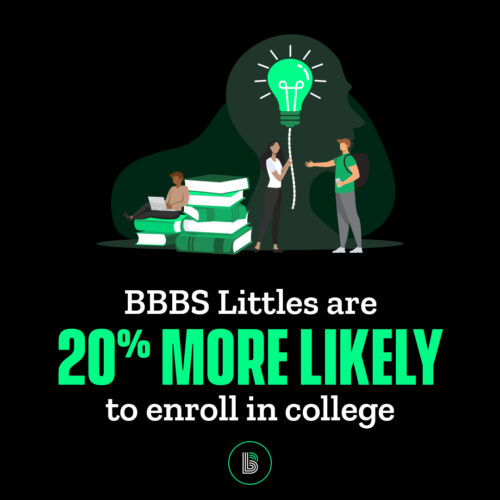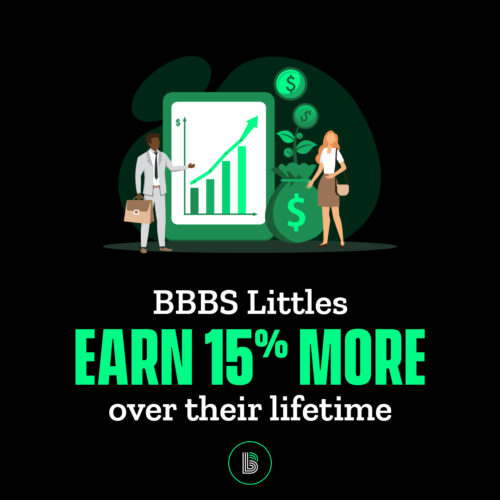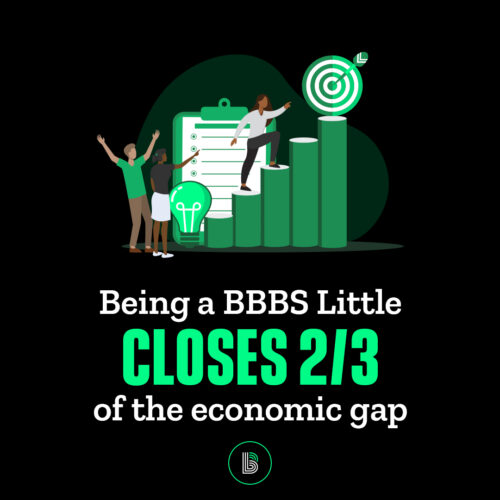Our Impact
Economic Research
Every connection between a Big and a Little has a ripple effect that extends far beyond the match. Our Economic Impact Research reveals how mentorship shapes brighter futures, strengthens communities, and proves that investing in young people is an investment in all of us.
THE URGENT NEED: A GENERATION AT RISK
Our nation’s youth face unprecedented challenges. Widening disparities, an escalating mental health crisis, and limited access to supportive networks are holding millions of young people back from achieving their full potential.
- 1 in 3 young people grow up without a positive role model, leaving them vulnerable to isolation and adversity.
- A generation’s potential is at stake. Without intervention, these challenges can lead to lost opportunities, unrealized dreams, and inequitable futures.
Mentorship is a proven solution. Evidence shows that young people who are mentored in a BBBS program are more likely to graduate high school, enroll in college, and develop the resilience needed to overcome life’s challenges. We cannot afford to lose the potential of this generation.
THE POWER OF RESEARCH
PROVEN LONG-TERM IMPACT
At BBBS, we know that mentorship changed lives. Now, groundbreaking research shows that a caring mentor can impact a young person’s present and shape their future for years to come.
Our recent economic impact study, The Long-Term Impacts of Mentors: Evidence from Experimental and Administrative Data, provides rare insights using data from the U.S. Department of the Treasury and Harvard University. This research validates what we’ve long believed: mentorship positively influences young people’s behavior, education, and labor market trajectories.
This research underscores the urgent need to expand our reach. With your support, we can scale this proven model to impact even more lives.
Key Findings
College Enrollment
Littles are 20% more likely to enroll in college after high school graduation, contributing to reduced poverty, greater economic stability, and stronger communities.
Economic Mobility
Littles enter the workforce earning more than their non-mentored peers, with a 15% higher income between the ages of 20 and 25.
Closing Socioeconomic Gaps
Mentorship closes two-thirds of the socio-economic gap for Littles compared with non-mentored young people. Their income as adults aligns more closely with their mentors than with their family of origin, demonstrating the power of mentorship to build social capital and foster upward mobility.



